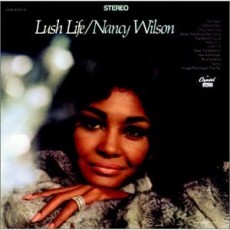
Daily Dose Of Jazz…
Nancy Wilson was born February 20, 1937 in Chillicothe, Ohio and at an early age was listening to Billy Eckstine, Nat Cole, Dinah Washington, Ruth Brown, LaVerne Baker, Little Esther and Jimmy Scott. She became aware of her talent while singing in church choirs, imitating singers as a young child and performing in her grandmother’s house during summer visits. By the age of four, she knew she would eventually become a singer.
At the age of 15, while at West High School in Columbus she won a talent contest sponsored by local television station WTVN. The prize was an appearance on a twice-a-week television show, Skyline Melodies, which she ended up hosting. She also worked clubs on the east and north sides of Columbus until she graduated from high school.
She spent one year at Ohio Central State College to become a teacher but dropped out to follow her original ambitions. She auditioned and won a spot with Rusty Bryant’s Carolyn Club Big Band in 1956, touring with them throughout Canada and the Midwest in 1956 to 1958. While in this group, Nancy made her first recording for Dots Records.
Nancy met Cannonball Adderley who suggested she move to New York that she did in 1959. Within four weeks she was filling in for Irene Reid at “The Blue Morocco” that booked her permanently four nights a week. With John Levy as her manager, who sent four demos to Capitol Records culminating with a contract signed in 1960 and recorded her debut release “Like In Love”.
Over the course of her career Nancy won three Grammy Awards, was nominated seven times, recorded more than six dozen albums, appeared in four movies, and sixteen television shows ranging from drama to comedy.
Song stylist and vocalist Nancy Wilson passed away on December 13, 2018, at her home in Pioneertown, California at 81 years old.
More Posts: vocal
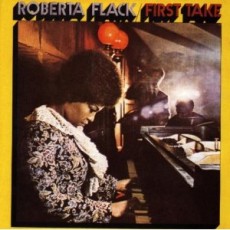
Daily Dose Of Jazz…
Roberta Flack was born February 10, 1937 in Black Mountain, North Carolina but raised in Arlington, Virginia, first discovering the work of Black music when she heard Mahalia Jackson and Sam Cooke sing in church. During her early teens excelling at classical piano Howard University gave her a full scholarship and she entered at 15. She changed her major from piano to voice and became an assistant conductor of the university choir.
Graduating from Howard at 19, she began graduate studies in music, but with the sudden death of her father she took a teaching job, which lasted for years in the Washington, DC school system and private lessons from her home. Soon she was performing around town accompanying herself on piano but her star didn’t begin to shine until her voice teacher suggested she turn to pop music. With a performance space built in a Capitol Hill club called Mr. Henry’s it only took the ears of Les McCann to arrange an audition with Atlantic Records. After only 10 hours in the studio, Roberta’s debut album “First Take” was recorded and released.
Flack’s Atlantic recordings did not sell particularly well, until Clint Eastwood chose a song from First Take, “The First Time Ever I Saw Your Face” for the sound track of Play Misty For Me and it became the biggest hit of 1972. Spending six consecutive weeks at #1 the song earned her first gold record and Record Of The Year Grammy in 1973.
Roberta would go on to record with Donny Hathaway, Peabo Bryson and Maxi Priest; write for television and film, going on to gather more Grammys and hit songs and albums over the course of her career and earned a star on the Hollywood Walk of Fame.
Vocalist and pianist Robera Flack died on February 24, 2025 in Manhattan, New York.
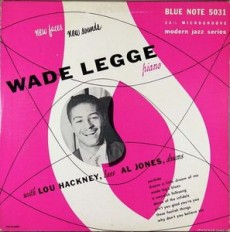
Daily Dose Of Jazz…
Wade Legge was born on February 4, 1934 in Huntington, West Virginia. He played more bass than piano in his early years, and it was with the bass that Milt Jackson first noticed him, recommending Wade to Dizzy Gillespie. After hiring him, Gillespie moved him to piano and he remained a member of Gillespie’s ensemble until 1954. During his Dizzy years, Legge recorded a date in France as a trio session leader.
Following his tenure with Gillespie, Wade moved to New York City and freelanced there, playing in Johnny Richards’s orchestra, and sessions with Charles Mingus, Sonny Rollins, Milt Jackson, Joe Roland, Bill Hardman, Pepper Adams, Jimmy Knepper and Jimmy Cleveland.
Legge was one of three pianists recording as a member of the variously staffed Gryce/Byrd Jazz Lab Quintets in 1957 and appeared on more than 50 recordings before retiring to Buffalo in 1959. Jazz bassist and pianist Wade Legge died on August 15, 1963 in Buffalo, New York at the age of 29.
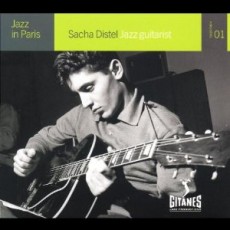
Daily Dose Of Jazz…
Sacha Distel: The Jazz Guitarist Who Became France’s Crooner to the World
Sacha Distel was born on January 29, 1933, in Paris, France, and started out like many young musicians, plinking away at the piano. But the guitar called to him with a voice he couldn’t ignore, and once he made the switch, there was no turning back.
A Life-Changing Night in 1948
When Sacha was just fifteen, his uncle Ray Ventura, founder of a jazz orchestra that had settled in Paris after the war—invited him to witness something extraordinary: Dizzy Gillespie performing with Ventura’s ensemble. For a teenage guitarist still finding his voice, hearing Gillespie’s revolutionary bebop trumpet in person was like being struck by lightning. That single concert ignited a passion that would define the next decade of Distel’s life.
Becoming a Jazz Leader
The experience with Gillespie split Ventura’s musical circle into two rival camps: Guy Wormser’s New Orleans traditionalists and a group of cool jazz and bebop enthusiasts led by the young Distel. Together with saxophonist Hubert Damisch, Sacha founded a band that quickly established him among Paris’s jazz elite.
Their talent was undeniable. At the prestigious Coliseum’s Night of Jazz, Distel’s ensemble won the Meilleur Petit Orchestre Moderne (Best Modern Small Orchestra) award, while both Damisch and Distel individually took home prizes as outstanding musicians on the same evening. Not bad for a teenager who’d only discovered jazz a few years earlier.
Crossing the Atlantic
Distel’s guitar work caught international attention. He worked alongside Dizzy Gillespie and collaborated with Tony Bennett, who would popularize Distel’s composition La Belle Vie, better known in English as The Good Life, turning it into a timeless standard that’s been recorded hundreds of times since.
By the late 1950s, Distel had appeared on The Ed Sullivan Show, introducing American audiences to his sophisticated musicianship and undeniable charisma. But something was shifting—the handsome young guitarist was also discovering he had a voice that audiences loved.
From Jazz Guitarist to International Star
What followed was a remarkable transformation. Distel evolved from serious jazz musician into one of France’s most beloved crooners and entertainers. He hosted his own variety show on French television, becoming a household name throughout the Francophone world and gaining popularity far beyond France’s borders.
His star power was genuine: he performed for the Queen Mother’s 80th birthday, played the manipulative lawyer Billy Flynn in the London production of Chicago, and famously dated Brigitte Bardot for a year. He later married Olympic skier Francine Breaud, settling into a life that balanced artistic achievement with genuine glamour.
Hits That Crossed Borders
Distel scored major hits with his cover of the Oscar-winning Raindrops Keep Fallin’ on My Head, the playful Scoubidou, which became something of a European phenomenon, and of course his own composition “The Good Life”, a song that perfectly captured the sophisticated, optimistic spirit of its composer.
A Bittersweet Ending
After a long illness, vocalist and guitarist Sacha Distel passed away on July 22, 2004, at age 71, in Rayol-Canadel, France, a small commune on the Mediterranean coast, far from the Parisian jazz clubs where he’d started and the international stages where he’d triumphed.
Two Careers, One Artist
Sacha Distel’s story is fascinating because it represents something rare: a serious jazz musician who successfully transitioned into mainstream entertainment without completely abandoning his roots. The guitarist who studied bebop never entirely disappeared, even when the crooner took center stage.
His composition The Good Life might be his most enduring legacy, a song that captures both his jazz sophistication and his gift for melody that could reach beyond the jazz cognoscenti to touch anyone who’d ever dreamed of la belle vie.
From a teenage guitar student mesmerized by Dizzy Gillespie to an international entertainer who made queens and common audiences alike smile, Sacha Distel lived the good life he sang about and shared it generously with the world.
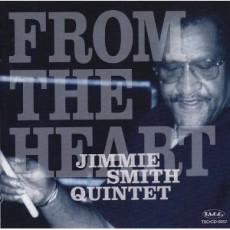
Daily Dose Of Jazz…
Jimmie Smith: The Drummer Who Played with Everyone Who Mattered
James Howard Smith was born on January 27, 1938, in Newark, New Jersey, and from the beginning, he was serious about the drums. From 1951 to 1954, while still a teenager, he studied at the Al Germansky School for Drummers—a specialized institution that emphasized both technique and musicality. His dedication paid off with acceptance to the legendary Juilliard School in 1959, where he refined his classical training and expanded his musical vocabulary.
But Smith wasn’t destined for the orchestral world, jazz was calling, and New York City was waiting.
The New York Years: A Who’s Who Education
Smith began his professional career in New York around 1959, and what followed was an apprenticeship that reads like a masterclass in post-bop jazz. Throughout the 1960s, he worked with saxophonist Jimmy Forrest, organist Larry Young, the groundbreaking vocal trio Lambert, Hendricks & Ross, saxophonist Pony Poindexter, blues shouter Jimmy Witherspoon, pianist Gildo Mahones, organists Jimmy McGriff and Groove Holmes—each gig teaching him something new about swing, time, and the art of musical conversation.
His longest and perhaps most formative association came with the incomparable pianist Erroll Garner, with whom he played until 1975. Working with Garner—whose rhythmically complex, orchestral approach to the piano demanded both flexibility and rock-solid time—was like earning a PhD in musical sensitivity.
Heading West
In 1975, Smith relocated to California, where his career took on new dimensions. The West Coast jazz scene of the 1970s through the 1990s was vibrant and diverse, and Smith found himself performing and recording with an almost absurd roster of talent: saxophonist Sonny Criss, vocalist Bill Henderson, singer Ernestine Anderson, pianist Phineas Newborn, guitarists Barney Kessel and Herb Ellis, and saxophonist Al Cohn—just to name a few.
Each collaboration revealed Smith’s remarkable adaptability. He could swing hard with horn players, provide delicate brush work behind vocalists, and drive a guitar trio with just the right combination of propulsion and restraint.
In 1993, he toured Japan with organist Jimmy Smith, no relation, and guitarist Kenny Burrell, a dream trio that brought classic soul-jazz to enthusiastic audiences abroad.
One Legendary Night in Montreux
One of drummer Jimmie Smith’s most celebrated performances took place at the 1977 Montreux International Jazz Festival, where he shared the stage with an all-star lineup that still seems impossible: saxophonist Benny Carter, trumpeter Miles Davis, vibraphonist Milt Jackson, trumpeter Dizzy Gillespie, and pianist Count Basie.
Imagine being the drummer holding down the rhythm section for that constellation of legends—multiple generations of jazz royalty, each with their own distinct style and expectations. Smith rose to the occasion, proving he belonged in that rarefied company.
As a Leader
While Smith spent most of his career as the ultimate supporting player, he did step forward as a leader on select occasions. He recorded From the Heart for the Tokyo Sound City label and the superb Rockin’ in Rhythm with bassist Ray Brown and pianist Hank Jones for Concord Records—a trio session that showcased his musical intelligence and his ability to create space for his equally accomplished bandmates.
The Drummer’s Drummer
Jimmie Smith represents a particular kind of jazz musician that’s increasingly rare: the complete professional who could walk into any musical situation, read the room or the chart, and deliver exactly what was needed. No ego trips, no showboating—just deep listening, impeccable time, and the kind of musical generosity that makes everyone else sound better.
From Newark to Juilliard, from Greenwich Village clubs to Montreux’s grand stages, from New York to California and across the Pacific to Japan, Jimmie Smith spent his career doing what he loved most: sitting behind the drums and making great music with great musicians.
And really, what better legacy could a jazz musician ask for than to be known as someone every bandleader wanted on the gig, someone who made the music swing, and someone who understood that sometimes the greatest artistry lies not in the spotlight, but in making the spotlight shine brighter on everyone else?
That’s Jimmie Smith—a drummer’s drummer, a musician’s musician, and one of the unsung heroes who helped keep the jazz tradition alive and swinging for over four decades.
More Posts: drums

